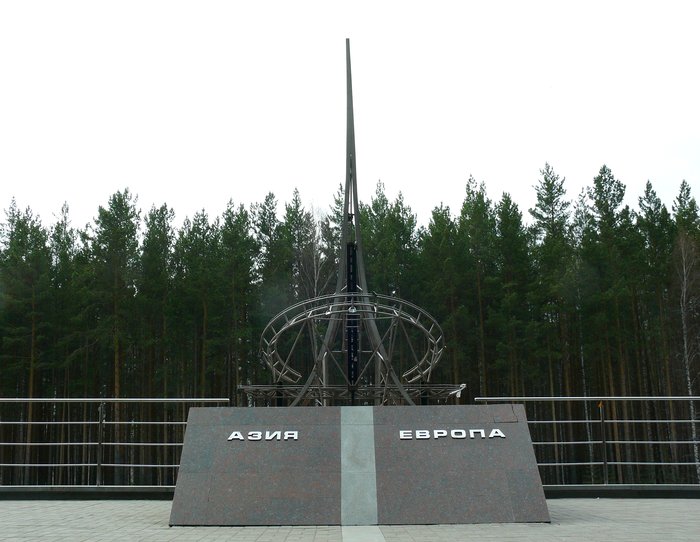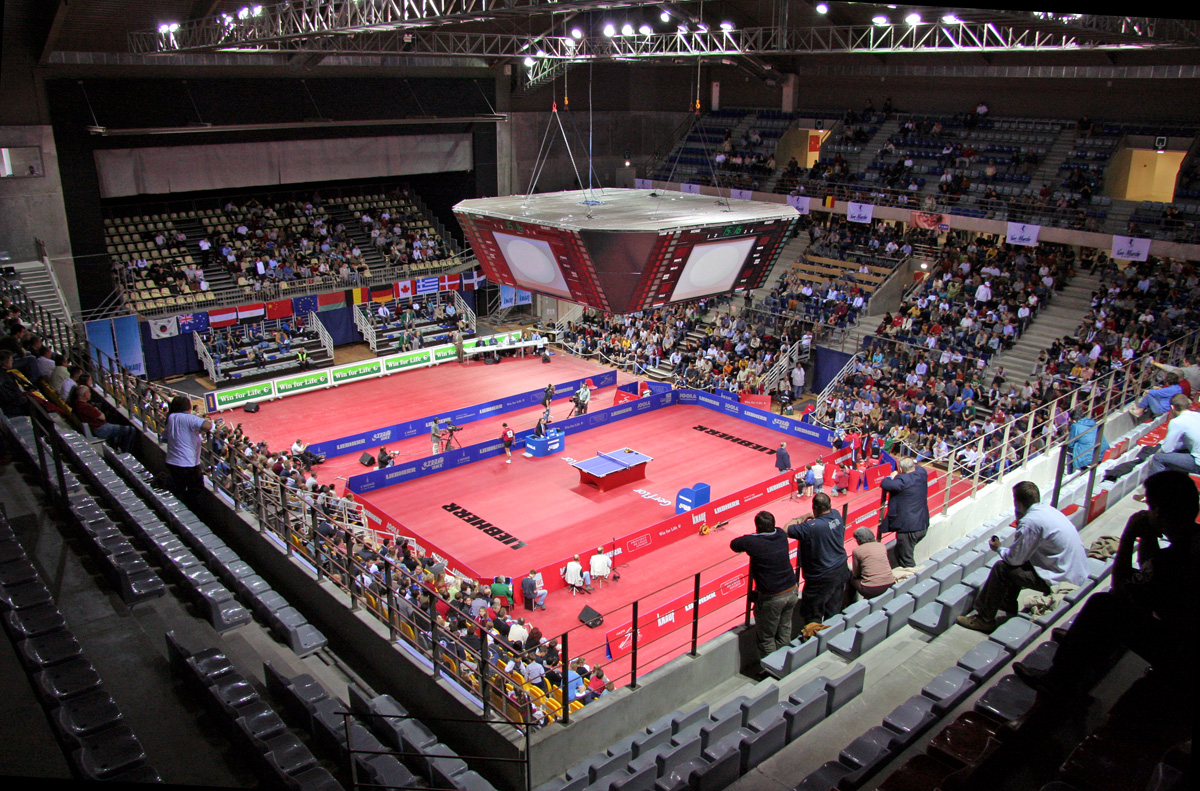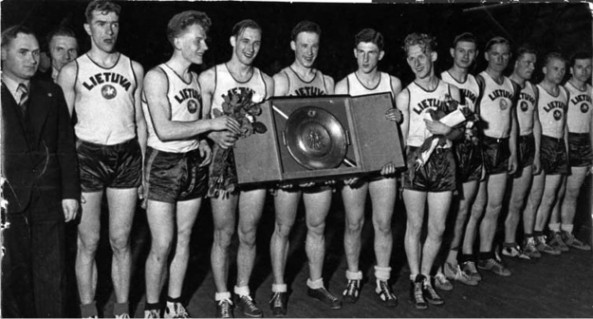|
Anatoli Myshkin
Anatoly Dmitriyevich Myshkin (born August 14, 1954) is a retired Soviet and Russian professional basketball player and coach. At 6 feet 9 inches (2.07 m) tall, and a weight of 210 lbs. (95 kg), he played as a combo forward (small forward-power forward). Myshkin was able to break up all of the defensive schemes in European basketball, due to his unique skill set. He was mobile and aggressive, and he possessed the speed and versatility to beat any defender. He was named one of FIBA's 50 Greatest Players in 1991. He was among the 105 player nominees for the 50 Greatest EuroLeague Contributors list. He was nicknamed, "The Prince". Club career While playing with CSKA Moscow, Myshkin won eight consecutive Soviet Union League titles, from 1977 to 1984. Even though his team was a FIBA European Champions Cup ( EuroLeague) regular, Myshkin never had the chance to play for the European-wide top-tier level continental title. National team career As a member of the senior Sovi ... [...More Info...] [...Related Items...] OR: [Wikipedia] [Google] [Baidu] |
Sverdlovsk Oblast
Sverdlovsk Oblast ( rus, Свердловская область, Sverdlovskaya oblast) is a federal subject (an oblast) of Russia located in the Ural Federal District. Its administrative center is the city of Yekaterinburg, formerly known as Sverdlovsk. Its population is 4,297,747 (according to the 2010 Census). Geography Most of the oblast is spread over the eastern slopes of the Middle and North Urals and the Western Siberian Plain. Only in the southwest does the oblast stretch onto the western slopes of the Ural Mountains. The highest mountains all rise in the North Urals, Konzhakovsky Kamen at and Denezhkin Kamen at . The Middle Urals is mostly hilly country with no discernible peaks; the mean elevation is closer to above sea level. Principal rivers include the Tavda, the Tura, the Chusovaya, and the Ufa, the latter two being tributaries of the Kama. Sverdlovsk Oblast borders with, clockwise from the west, Perm Krai, the Komi Republic, Khanty–Mansi Autonomo ... [...More Info...] [...Related Items...] OR: [Wikipedia] [Google] [Baidu] |
Soviet Women's Basketball Championship
The Soviet Women's Basketball Championship was the top women's basketball competition in the Soviet Union. The championship was founded in 1937, and dominated by Dynamo Moscow in its early stages. Four years later it was interrupted due to World War Two. The competition was resumed in 1944, with MAI becoming a second powerhouse. In 1949 Dynamo Kyiv became the first non-Russian team to win the championship. In 1959 Dynamo Moscow represented the Soviet Union in the inaugural edition of the European Cup. That same year the championship was won by Latvian team Daugava Riga, which soon established itself as the championship's major powerhouse, winning every edition of the tournament in the 1960s. Daugava's hegemony loosened somewhat in the 1970s, losing the 1974 and 1978 championships to Spartak Leningrad and Spartak Moscow, but still the Latvians, led by Uljana Semjonova, won every other edition until 1984. In the second half of the 1980s Russian teams took again the lead, with CS ... [...More Info...] [...Related Items...] OR: [Wikipedia] [Google] [Baidu] |
EuroBasket 1979
The 1979 FIBA European Championship, commonly called FIBA EuroBasket 1979, was the 21st FIBA EuroBasket regional basketball championship, held by FIBA Europe. Twelve national teams affiliated with the International Basketball Federation entered the competition. The competition was hosted by Italy. Mestre, Siena, Gorizia and Turin were the venues of the event. Venues Results First round In the preliminary round, the 12 teams were split up into three groups of four teams each. The top two teams in each group advanced to the Final Round (with the score between them counting in the final round as well) while the bottom two were sent to the classification round to play for 7th to 12th Places (with the score between them counting in the classification round as well) Group A – Mestre Group B – Siena Group C – Gorizia Classification Round – Turin In the Classification Round played the teams that finish 3rd and 4th in their Preliminary round Grou ... [...More Info...] [...Related Items...] OR: [Wikipedia] [Google] [Baidu] |
EuroBasket 1977
The 1977 FIBA European Championship, commonly called FIBA EuroBasket 1977, was the twentieth FIBA EuroBasket regional basketball championship, held by FIBA Europe. Venues Group stage Group A – Liège Group B – Ostend Knockout stage 5th to 8th place 9th to 12th place Final standings # # # # # # # # # # # # Awards Team rosters 1. Yugoslavia: Krešimir Ćosić, Dražen Dalipagić, Mirza Delibašić, Dragan Kićanović, Zoran Slavnić, Žarko Varajić, Željko Jerkov, Vinko Jelovac, Ratko Radovanović, Duje Krstulović, Ante Đogić, Joško Papič (Coach: Aleksandar Nikolić) 2. Soviet Union: Sergei Belov, Anatoly Myshkin, Vladimir Tkachenko, Aleksander Belostenny, Stanislav Eremin, Mikheil Korkia, Valeri Miloserdov, Vladimir Zhigili, Aleksander Salnikov, Viktor Petrakov, Vladimir Arzamaskov, Aleksander Kharchenkov (Coach: Alexander Gomelsky) 3. Czechoslovakia: Kamil Brabenec, Stanislav Kropilak, Zdenek Kos ... [...More Info...] [...Related Items...] OR: [Wikipedia] [Google] [Baidu] |
EuroBasket 1973
The 1973 FIBA European Championship, commonly called FIBA EuroBasket 1973, was the eighteenth FIBA EuroBasket regional basketball championship, held by FIBA Europe. Venues Group stage Group A – Badalona Group B – Barcelona Knockout stage 5th to 8th place 9th to 12th place Final standings # # # # # # # # # # # # Awards Team rosters 1. Yugoslavia: Krešimir Ćosić, Dražen Dalipagić, Dragan Kićanović, Zoran Slavnić, Nikola Plećaš, Željko Jerkov, Vinko Jelovac, Damir Šolman, Rato Tvrdić, Milun Marović, Žarko Knežević, Dragi Ivković (Coach: Mirko Novosel) 2. Spain: Clifford Luyk, Wayne Brabender, Francisco "Nino" Buscato, Vicente Ramos, Rafael Rullan, Manuel Flores, Luis Miguel Santillana, Carmelo Cabrera, Gonzalo Sagi-Vela, Jose Luis Sagi-Vela, Miguel Angel Estrada, Enrique Margall (Coach: Antonio Díaz-Miguel) 3. Soviet Union: Sergei Belov, Modestas Paulauskas, Anatoly Myshkin, Ivan Edeshko, Zurab Sakandelidze, ... [...More Info...] [...Related Items...] OR: [Wikipedia] [Google] [Baidu] |
EuroBasket
EuroBasket, also commonly referred to as the European Basketball Championship, is the main international basketball competition that is contested quadrennially, by the senior men's national teams that are governed by FIBA Europe, which is the European zone within the International Basketball Federation. The competition was first held in 1935. The former Soviet Union holds the record for most gold medals with a total of 14. The tournament is generally held in August or September, in the offseason of major club competitions. The current defending champion is Spain, who won the 2022 title. History Beginning The first championships was held three years after the establishment of FIBA, in 1935. Switzerland was chosen as the host country, and ten countries joined. Only one qualifying match was played between Portugal and Spain. With a complicated formula, the final would see Latvia as champions. According to the rule at the time, the winner had to hold the following games. The fo ... [...More Info...] [...Related Items...] OR: [Wikipedia] [Google] [Baidu] |
1982 FIBA World Championship
The 1982 FIBA World Championship was the 9th FIBA World Championship, the international basketball world championship for men's teams. The tournament was hosted by Colombia from 15 to 28 August 1982. Qualification Venues Competing nations Preliminary round Group A Group B Group C Classification round Semifinal round Final round Third place playoff Final Final rankings Awards All-Tournament Team * Doc Rivers (USA) * Dragan Kićanović (Yugoslavia) * Juan Antonio San Epifanio (Spain) * Vladimir Tkachenko (USSR) * Anatoli Myshkin (USSR) Top 10 scorers (points per game) # Rolando Frazer (Panama) 24.4 # Ian Davies (Australia) 23.4 # Wilfredo Ruiz (Uruguay) 23.4 # Dié Drisa (Côte d'Ivoire) 21.6 # Dragan Kićanović (Yugoslavia) 21.1 # Oscar Schmidt (Brazil) 21.0 # Stanislav Kropilak (Czechoslovakia) 19.3 # Juan Antonio San Epifanio (Spain) 18.1 # Gustav Hraska (Czechoslovakia) 18.0 # Jay Triano (Ca ... [...More Info...] [...Related Items...] OR: [Wikipedia] [Google] [Baidu] |
1978 FIBA World Championship
The 1978 FIBA World Championship was the 8th FIBA World Championship, the international basketball world championship for men's teams. The tournament was hosted by the Philippines from October 1 to 14, 1978 in Rizal Memorial Coliseum in Manila and Araneta Coliseum in Quezon City (both cities in Metro Manila). It was the first FIBA World Championship (now called the FIBA Basketball World Cup) held in Asia. Host selection On July 11, 1974 at the FIBA Congress held in San Juan, Puerto Rico, the Philippines was unanimously chosen as host after Argentina and Spain withdrew their bids. Venues (*) Temporarily reduced to 10,000 for the finals due to safety reasons. Competing nations Preliminary round Group A Group B Group C Classification round Semifinal round Final round Seventh place playoff Fifth place playoff Third place playoff Final Final rankings Awards All-Tournament Team * Krešimir Ćosić * ... [...More Info...] [...Related Items...] OR: [Wikipedia] [Google] [Baidu] |
FIBA World Championship
The FIBA Basketball World Cup, also known as the FIBA World Cup of Basketball or simply the FIBA World Cup, between 1950 and 2010 known as the FIBA World Championship, is an international basketball competition contested by the senior men's national teams of the members of the International Basketball Federation (FIBA), the sport's global governing body. It is considered the flagship event of FIBA. The tournament structure is similar, but not identical, to that of the FIFA World Cup; both of these international competitions were played in the same year from 1970 through 2014. A parallel event for women's teams, now known as the FIBA Women's Basketball World Cup, is also held quadrennially. From 1986 through 2014, the men's and women's championships were held in the same year, though in different countries. The current format of the tournament involves 32 teams competing for the title at venues within the host nation. The winning team receives the Naismith Trophy, first awarded ... [...More Info...] [...Related Items...] OR: [Wikipedia] [Google] [Baidu] |
Basketball At The 1980 Summer Olympics
Basketball at the 1980 Summer Olympics was the tenth appearance of the sport of basketball as an official Olympic medal event. It was held from July 20 to July 30 at the Olympiiski Indoor Stadium Olympic Games Official Report 1980 Moscow-Volume III /ref> and at the CSKA Sports Palace, both located in Moscow, |
Basketball At The 1976 Summer Olympics
Basketball events at the 1976 Summer Olympics was the ninth appearance of the sport of basketball as an official Olympic medal event. It took place from July 18 to July 27 at the Centre Étienne Desmarteau and the Montreal Forum in Montreal, Quebec, Canada. Women's basketball was introduced to the Olympic program for the first time at this Games. The United States won the gold against Yugoslavia in the men's tournament, while the Soviet Union won the gold medal against the United States in the women's competition. Medal summary Qualification A single NOC may enter up to one men's team with 12 players and up to one women's team with 12 players. Automatic qualifications were granted to the host country for both events plus the three medal winners from the previous Olympic Games for the men's tournament, and the three first places at the 1975 FIBA World Championship for the women's tournament. Additional spots for the men's tournament were decided via the continental qualificati ... [...More Info...] [...Related Items...] OR: [Wikipedia] [Google] [Baidu] |
Basketball At The Summer Olympics
Basketball at the Summer Olympics has been a sport for men consistently since Basketball at the 1936 Summer Olympics, 1936. Prior to its inclusion as a medal sport, basketball was held as a demonstration event in Basketball at the 1904 Summer Olympics, 1904. Women's basketball made its debut in the Summer Olympics in Basketball at the 1976 Summer Olympics, 1976. FIBA organizes both the men's and women's FIBA World Olympic Qualifying Tournaments and the Summer Olympics basketball tournaments, which are sanctioned by the International Olympic Committee, IOC. The United States is by far the most successful country in Olympic basketball, with United States men's national basketball team, United States men's teams having won 16 of 19 tournaments in which they participated, including seven consecutive titles from Basketball at the 1936 Summer Olympics, 1936 through Basketball at the 1968 Summer Olympics, 1968. United States women's national basketball team, United States women's teams ... [...More Info...] [...Related Items...] OR: [Wikipedia] [Google] [Baidu] |


.jpg)

